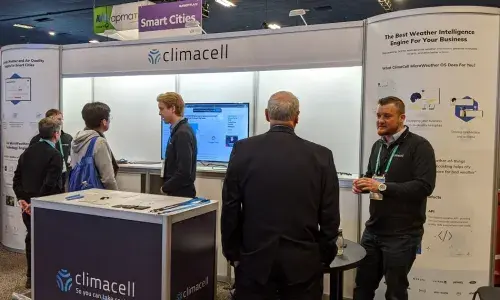
How a novel innovation challenge may fuel the next wave of electric vehicle innovation in urban city centres
As one of the largest greenhouse gas emitters on the planet (ahem, aside from certain neighbours to the West and to the East), the UK is on the hunt to find the right people, collaborations and funding to tackle some of the most pressing social and environmental challenges rising up across our ever-connected cities
. In an attempt to create lasting change, last June’s London Tech Week presented the inaugural Civic Innovation Challenge, an innovation opportunity that could not be missed.
The goal? Identify an area in need of civic improvement and provide a plan to roll it out, all the while connecting early stage startups and entrepreneurs with corporates and civic authorities to provide collaborative solutions. All of these communities and plans came to fruition as London Mayor Sadiq Khan pushes the city to be “a global test-bed for civic innovation.”
National Grid, in an act of both civic pride and a nod to shifting market trends, joined Greater London Authority (GLA) to identify one area in need of quick improvement – the efficient and effective charging and use of electric vehicles (EVs). Working together to source a number of applicants, the group, also comprised of Bethnal Green Ventures and Virgin Media, settled on Connected Kerb, a company future-proofing electric vehicle charging. The team’s concept resulted in piloting several prototype EV charging solutions to understand how best to engage with customers and find a versatile technology that can provide multiple uses (not just power up a car!).
The Challenge
With more than 25% of greenhouse gases coming from the transportation sector and up to 11 million EVs in the UK by 2030 according to National Grid Future Energy Scenarios, how does a city like London engage residents with a view to accelerate EV adoption in city centres in an effective and scalable fashion?
The Innovation
In just shy of four months, Connected Kerb installed a series of electric vehicle charging stations designed for quick connectivity and on-street parking, a necessity for the majority of Londoners where residents have little to no driveway and public parking doubles as residential parking. Working with city planners, the company’s five prototype EV chargers lined Borough Road, an east-west street in Southwark, London.
Connected Kerb’s solution brings residential charging points to consumers in a low impact and affordable way and accessible in city dwellings. The company’s EV infrastructure also provides fast wi-fi and data connectivity – potentially providing access to 5G – the next wave of telecommunications infrastructure.
These charging stations, now doubling as a smart-city platform, can also provide traffic flow and environment data through sensors to track a neighbourhood’s evolving ecosystem and environment. Initially these sensors will inform where parking spaces are available, measure how much traffic is moving through the area and capture air quality trends. Both city officials and residents alike benefit by understanding these trends, helping the whole community.
The Vision
The innovation challenge brought a mixture of public and private leaders to help elevate the awareness of key areas of civic improvement. The challenge has enabled early stage startups to accelerate their journey – quickly execute vital assets to validate their technology and customer proposition.
Connected Kerb’s solution brings together the building blocks of low carbon transport infrastructure, future telecommunication services and smart city applications providing less dependence on a single source of revenue. It also opens up news ways to connect neighbourhoods, cities and beyond in a business-savvy, environmentally friendly and tech forward fashion.
Over the next few months Connected Kerb will gain a tangible understanding of how the EV prototype chargers can seamlessly coalesce in a neighbourhood, prove convenient for residents and provide integrated services to the public.
The Learnings
Pilots like this help National Grid expand our innovation toolkit and share knowledge capital among multiple partners, providing a mutually exclusive solution for start-ups, cities, large institutions and ultimately consumers. This open innovation approach provides a collaborative way to learn, work together on emerging technologies and business models, and quickly develop innovation concepts into future customer services.
Last year’s Civic Innovation Challenge, will not only create a blueprint for corporate innovation, but also offer a way for city leaders to share civic goals, promote positive change and accelerate homegrown startups – enabling great cities like London to emerge as global innovation hotspots.
Stephen Marland, Director, Innovation, National Grid Partners & Martin Cook, Head of Electric Vehicles at National Grid Ventures


